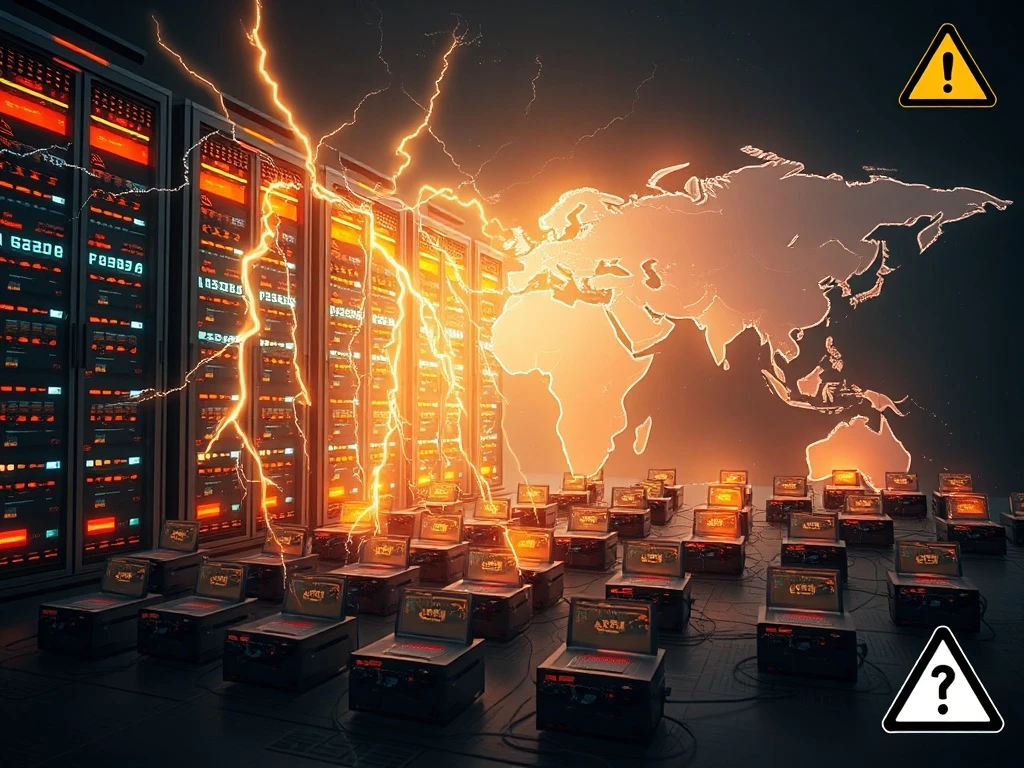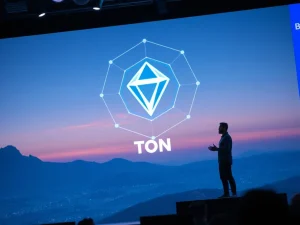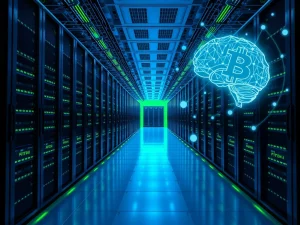Urgent: AI Energy Crisis Looms as Akash Founder Greg Osuri Champions Decentralized Solutions

The rapid advancement of artificial intelligence (AI) brings both incredible potential and significant challenges. For those invested in cryptocurrencies and decentralized technologies, a critical warning has emerged. Greg Osuri, founder of Akash Network, recently highlighted a looming AI energy crisis. He suggests that current AI training methods are unsustainable. This perspective offers a vital intersection between technological progress and environmental responsibility. Osuri proposes decentralized solutions, much like the early days of crypto mining, as a viable path forward.
The Escalating AI Energy Crisis: A Global Threat
Artificial intelligence models are growing at an astonishing rate. Consequently, their computational demands are doubling quickly. Greg Osuri, speaking at Token2049 in Singapore, warned that the industry significantly underestimates these escalating compute needs. He emphasized the environmental and economic costs involved. Data centers, which house AI training infrastructure, already consume hundreds of megawatts of fossil fuel power. This trend, Osuri argues, could soon trigger a global energy crisis. Household power bills would likely rise, and millions of tons of new carbon emissions would enter the atmosphere each year. He starkly stated, “We’re getting to a point where AI is killing people.” This refers to the health impacts from concentrated fossil fuel use near data hubs.
Decentralized AI: A Sustainable Alternative
Recent reports underscore the urgency of this issue. Bloomberg, on September 30, detailed how AI data centers are dramatically increasing power costs in the US. The report highlighted a staggering 267% surge in wholesale electricity costs over five years in areas surrounding these data centers. Osuri presents decentralized AI as the essential alternative. Instead of concentrating computing power and energy within single mega-data centers, Osuri advocates for distributed training. This approach involves spreading workloads across networks of smaller, diverse GPUs. These could range from high-end enterprise chips to everyday gaming cards found in home PCs. This distribution could unlock significant efficiencies and promote sustainability.
Osuri drew a parallel to the early days of Bitcoin (BTC) mining. He suggested that once proper incentives are established, this decentralized model will gain rapid traction. Home computer owners might eventually earn tokens by contributing their spare compute power. This vision allows ordinary individuals to participate actively in the future of AI. It also aims to lower costs for developers. Such a system offers everyday people a direct stake in AI’s development, moving beyond concentrated corporate control.
Tackling Challenges in AI Training Energy
While the potential of decentralized AI is immense, significant challenges remain. Training large-scale models across a patchwork of different GPUs requires substantial technological breakthroughs. Specifically, advancements in software and coordination are crucial. Osuri notes that the industry has only recently begun to address these complex issues. He observed that several companies started demonstrating aspects of distributed training about six months ago. However, he admitted, “No one has put all those things together and actually run a model.” Yet, he remains optimistic, believing this could change “by the end of the year.”
Another critical hurdle involves creating fair and effective incentive systems. Osuri emphasized, “The hard part is incentive.” He questioned, “Why would someone give their computer to train? What are they getting back?” Solving this challenge is arguably more difficult than developing the underlying algorithmic technology. Establishing a robust tokenomics model or similar reward structure is paramount for widespread adoption. This would ensure consistent participation from a global network of compute providers.
Akash Network‘s Vision for a Sustainable AI Future
Despite these obstacles, Osuri firmly believes that decentralized AI training is an absolute necessity. By distributing AI workloads across global networks, the technology could significantly ease pressure on existing energy grids. This approach would also substantially cut carbon emissions. Ultimately, it aims to foster a more sustainable AI economy. Akash Network, as a decentralized cloud computing marketplace, is uniquely positioned to facilitate this vision. It provides a platform where users can buy and sell compute resources. This directly supports the distributed model Osuri advocates. The future of AI hinges on addressing its energy demands. Decentralization offers a compelling and essential solution for a more responsible technological era.








